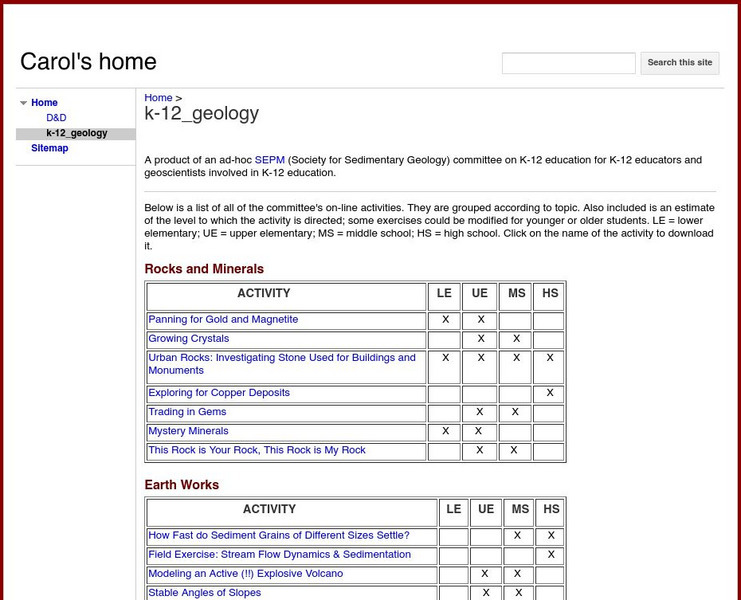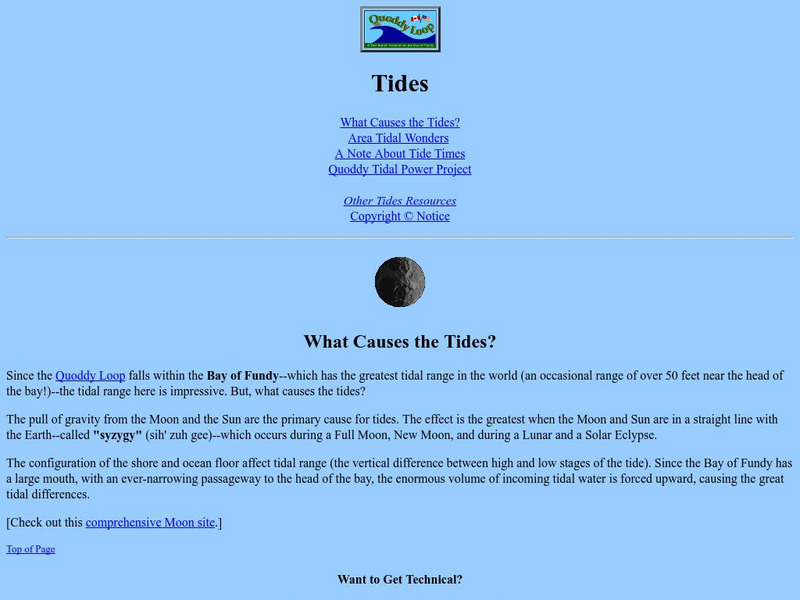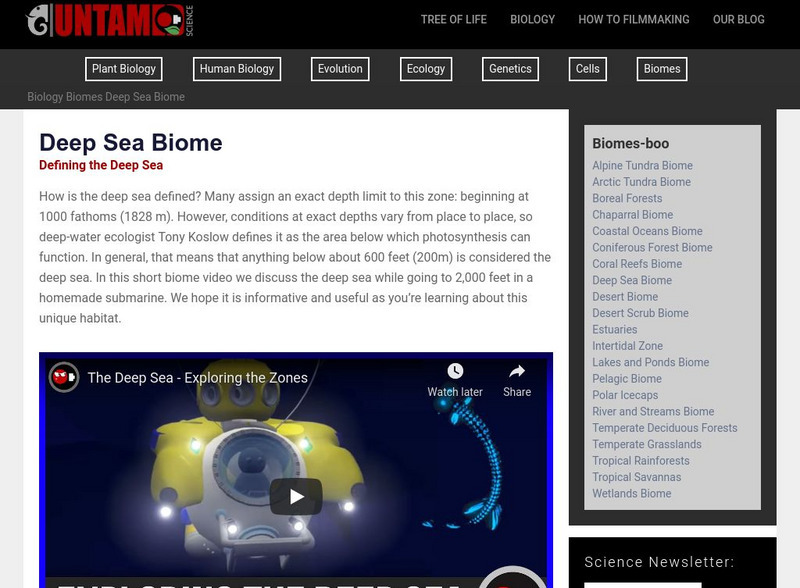Next.cc
Next: Oceans
Learn about the importance of oceans and their connection to weather by completing the five activities. Explore further by clicking on one of the numerous links provided.
Lizard Point Quizzes
Lizard Point: World Oceans and Continents Quiz
Test your geography knowledge by taking this interactive quiz over the world's continents and oceans.
Simon Fraser University
Chem1 Virtual Textbook: Chemistry and Geochemistry of the Oceans
As part of the General Chemistry Virtual Textbook, this site examines a variety of topics related to the oceans. Topics covered include composition of seawater, conservative and non-conservative substances, organic matter, and more.
Writing Fix
Writing Fix: An I Pod Inspired Writing Lesson: This I Believe: Science
This writing assignments asks students to decide how they will make a difference in the effort to save our oceans. First students will listen to several episodes of "This I Believe," the NPR weekly pod cast where authors describe their...
Missouri Botanical Garden
Missouri Botanical Garden: Fa Qs About Temperate Oceans
Learn why the ocean is blue. Learn the names of the oceans and how they received their names. Learn how the ocean forms waves.
Smithsonian Institution
Smithsonian Education: Ocean Planet
A series of lesson plans designed to be used with the Smithsonian Ocean Planet exhibit (available online). Lesson topics include marine ecosystems, pollution of ocean water, animal strandings, and literature.
Missouri Botanical Garden
Missouri Botanical Garden: Temperate Oceans
This site from the Missouri Botanical Garden is a comprehensive site covering various topics related to temperate oceans. Be sure to check out the ocean animals link on the left side to learn more about the invertebrates that live in the...
Missouri Botanical Garden
Missouri Botanical Garden: Temperate Oceans
How are the Atlantic and Pacific oceans different? At this site from the Missouri Botanical Garden you can click on the "Atlantic and Pacific Oceans," link to learn all about this topic. Study the two animated illustrations given to...
PBS
Pbs: Secrets of the Ocean Realm
At this site students can read about sea creatures and ocean plant life, and see pictures of each.
Other
College of Exploration: Ocean Literacy [Pdf]
A guide to help educators become ocean literate. The goal is to redress the lack of ocean-related content in state and national science education standards, instructional materials, and assessments. PDF (requires Adobe Reader).
Other
Beloit College: K 12 Geology
This is a good source of basic information about density currents in water. It includes simple activities you can do to demonstrate these currents.
Exploring Nature
Exploring Nature Educational Resource: Oceans of the World
A set of illustrated fact pages, and some activity sheets, on coral reefs, tidal pools, and ocean ecosystems. Find maps, graphic organizers, and a movie link to tidal zones. Hyperlinks to specialized vocabulary words are also provided....
Vocabulary University
My vocabulary.com: Oceans
This page has a variety of vocabulary puzzles and activities using 20 vocabulary words pertaining to oceans. It also offers an extensive list of ocean and maritime vocabulary and some lesson plan ideas.
Other
Quoddy Loop: Tides
This resource gives an in-depth description of the Quoddy Loop of Islands within the Bay of Fundy. This area has the greatest tidal range in the world. Learn what causes these massive tides.
The Franklin Institute
Missouri Botanical Garden: Ocean Facts
Click on all the links to find out many interesting facts about the ocean. Why is the ocean blue? Why is it salty? Where do most of the animals and plants live? Which ocean is the biggest? The deepest? How much of the Earth is covered by...
The Franklin Institute
In Quiry Almanack: Undersea and Oversee
Dive into a greater understanding of the oceans by tagging along on this exploration of the oceans.
Australian Broadcasting Corporation
Australian Broadcasting Corporation: Oceans Alive: Cool, Wet Facts
Did you know that turtles migrate 1400 miles to lay their eggs? Did you know that penguins swim underwater at 55 MPH? Click on this site to learn more interesting facts.
NOAA
Noaa: Pmel: The North Pacific Ocean
This site includes a map of the North Pacific Ocean, links to the surrounding islands, the ocean currents, and more about the North Pacific.
Other
Lunar and Planetary Institute: Oceans From Space
This collection of photographs from space-shuttle missions shows some features of oceanic circulation that simply cannot be seen from any other vantage point. This site is a great resource for many different topics of study.
National Geographic
National Geographic: Geostories: Ocean Exploration
This Geostory illustrates pivotal events in undersea understanding.
National Geographic
National Geographic: Our Hydrosphere
After learning about the Earth's hydrosphere and its major components, students look at the interconnections within the hydrosphere and with humans. Includes a vocabulary list with definitions.
World Wildlife Fund for Nature
Wwf: Our Earth: Ecoregions: Habitats: Oceans
An introduction and overview of the ocean habitat, the largest habitat on Earth. Includes links to information about three animals that live in this habitat.
Sophia Learning
Sophia: Oceans and Global Climate
This lesson will describe the effect that oceans have on the global climate.
Untamed Science
Untamed Science: Biology: World Biomes: Deep Sea Biome
Read about the different zones and life in the deep sea as well as watch videos and examine photos of this aquatic biome. [5:54]





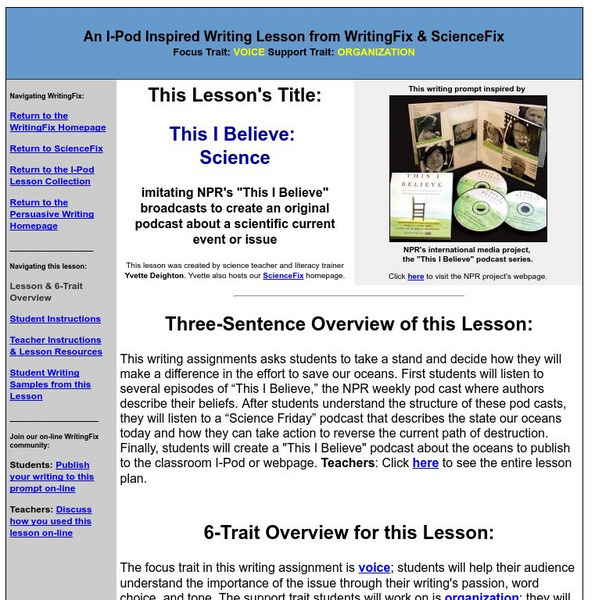

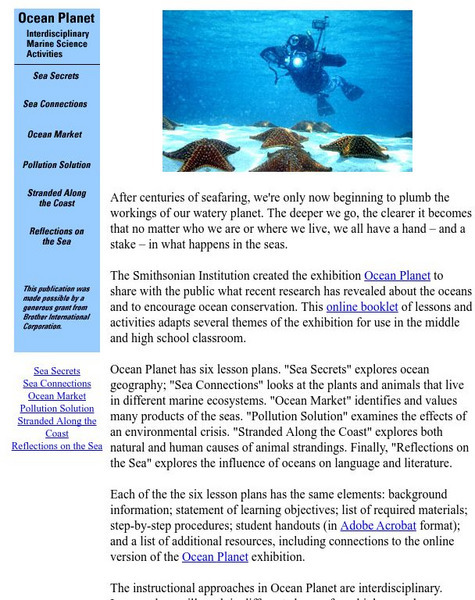

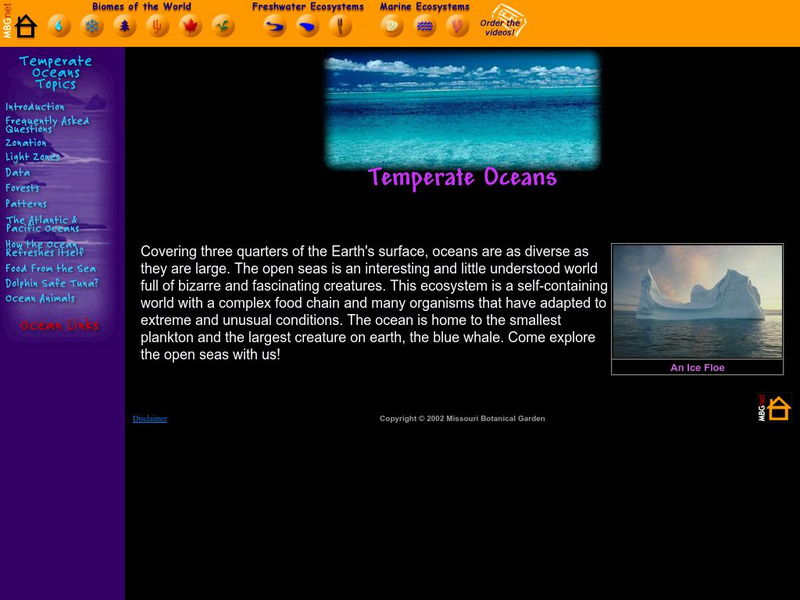

![College of Exploration: Ocean Literacy [Pdf] Professional Doc College of Exploration: Ocean Literacy [Pdf] Professional Doc](https://d15y2dacu3jp90.cloudfront.net/images/attachment_defaults/resource/large/FPO-knovation.png)
